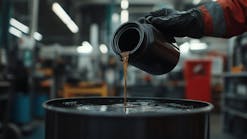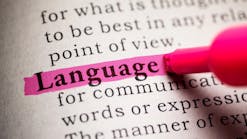According to Car & Driver, the top-selling passenger vehicles in 2020 were: Ford F-Series, Chevrolet Silverado, Ram Pickup, Toyota RAV4, Honda CR-V, Toyota Camry, Chevrolet Equinox, Honda Civic, GMC Sierra, Toyota Tacoma, Toyota Corolla, Nissan Rogue, Ford Explorer, Toyota Highlander, Jeep Grand Cherokee, Jeep Wrangler, Honda Accord, Ford Escape, Subaru Forester, Subaru Outback, Mazda CX-5, Nissan Altima, Jeep Cherokee, Ford Transit, and Toyota 4Runner.
This list represents a variety of cars and trucks with something very important in common: Their original warranties have run out, and the BBB Auto Line arbitration program doesn’t cover vehicles out of warranty.
That means consumers who purchased those popular vehicles and maintained them properly won’t get satisfaction from their OEMs post-breakdown unless they can prove a manufacturing defect, which typically takes years of litigation to establish or settle in lieu of an admission. For everything else, consumers are most likely to challenge the last company that serviced their out-of-warranty vehicles, especially when repair costs continue to skyrocket and the original service price seemed high as well. The fact that much of those maintenance and repair costs have gone up due to vehicle tech and supply chain increases doesn’t make consumers feel any better.
Tariffs’ Role in Expired Warranties
A representative of AutoZone recently made a public comment that the automotive parts supplier would pass on to customers any cost increases due to new tariffs. Despite echoing a very basic concept, his comment went viral as a “gotcha,” which should serve as a warning to automotive service providers. That warning is also underscored by a Sept. 4 bipartisan letter from the House Select Committee on the Chinese Communist Party Chairman John Moolenaar, R-Mich.; Ranking Member Raja Krishnamoorthi, D-Ill.; Sen. Sherrod Brown, D-Ohio; Sen. Bill Cassidy, R-La.; Ashley Hinson, R-Iowa; Darin LaHood, R-Ill.; and Glenn Ivey, D-Md., to AutoZone and other major automotive retailers inquiring about Chinese manufacturers circumventing tariffs in recent years. If true, it would have contributed to keeping certain auto parts prices artificially lower, which tends to indicate higher potential costs overall next year even if the government simply enforces existing tariffs.
So, what do tariffs have to do with 2020’s favorite cars running out of warranty coverage? Let’s have a look at the second-bestselling 2020 vehicle model. The Chevrolet Silverado 1500 now has 11 recalls and 1,333 manufacturer communications (MCs). Among the giant stack of MCs are 452 TSBs on the engines. This model comes with a variety of engine options, such as 3.0L Duramax diesel, 6.2L V8, 5.3L V8, 4.3L V6, or the 2.7L Turbo engine. General Motors recently recalled the Duramax diesel engine (NHTSA 24V-797) because the transmission control valve may fail and cause the rear wheels to lock up. It hasn’t issued recalls on the other engines for this vehicle model yet, but many problems show up in this model’s TSBs and different models’ customer service programs and pending lawsuits.
General Motors TSB 23-NA-043, Poor Engine Performance, Engine Misfires, Malfunction Indicator Lamp (MIL) Illuminated-DTC P0300-308 Set (March 2024) covers both the 6.2L and 5.3L engine with lifter problems on the 2020 Chevy Silverado. Those engines also have tapping and ticking that is “difficult to isolate,” as well as trouble with auto stop/start.
For the 2.7L engine, there’s General Motors TSB PIP5921A Diagnostic Tip: Possible No Start, Engine Noise (September 2024), which covers vehicles experiencing a tapping or scraping type noise, abnormal debris in the engine oil, crank/no start, and certain camshaft DTCs.
For the 4.3L engine there’s GM TSB Engine Wire Harness Chafing / IPC Gauges Sweep / IPC Warning Message / SES/Check Engine/MIL / No Start / No Crank / Runs Rough / Stalls / Reduced Engine Power / Various DTCs (August 2024).
There is also General Motors TSB 01-06-01-011Q, Guidelines and diagnostic/repair information to technicians regarding vehicle engine oil consumption (October 2024). Although GM hasn’t provided a copy of it, NHTSA reports the TSB as applying to 892 models including the 2020 Chevrolet Silverado.
Have a Plan for Out-of-Warranty Vehicles
Remember: Just because engine problems are known, that doesn’t extend warranty coverage.
Those 2020 Chevy Silverado highlights above only represent the tip of that particular iceberg. There are 24 more models listed, plus all the Hyundai, Kia, and other brands and models not included in the original list. Knowing how much more expensive it will be to repair/replace one of those engines and how likely it will be for those customers to experience engine problems out of warranty, it makes sense to review warranty practices and prepare consumer education about service intervals and the impact of maintenance obligations. An oil change at 65,000 miles cannot eliminate sludge in an engine prone to excessive oil consumption. It cannot repair defective lifters or incorrect rod bearing clearance. It cannot reverse the impact of a consumer failing to understand that most drivers experience severe conditions (reality) versus the so-called “normal” longest service interval (sales marketing message).
Routine maintenance is far less expensive than repairs. It’s a great message to plan around, but consumers also need to know it cannot solve engine defects or years of neglect. The last service provider to do basic maintenance on a higher mileage car may have nothing to do with the engine’s overall condition, especially when servicing it for the first time.
Automakers already have a plan for consumers with vehicles that are out of warranty or inadequately serviced. It’s called “no.” If you’re an aftermarket service provider, what’s your plan? Repairs are too expensive not to have one.






